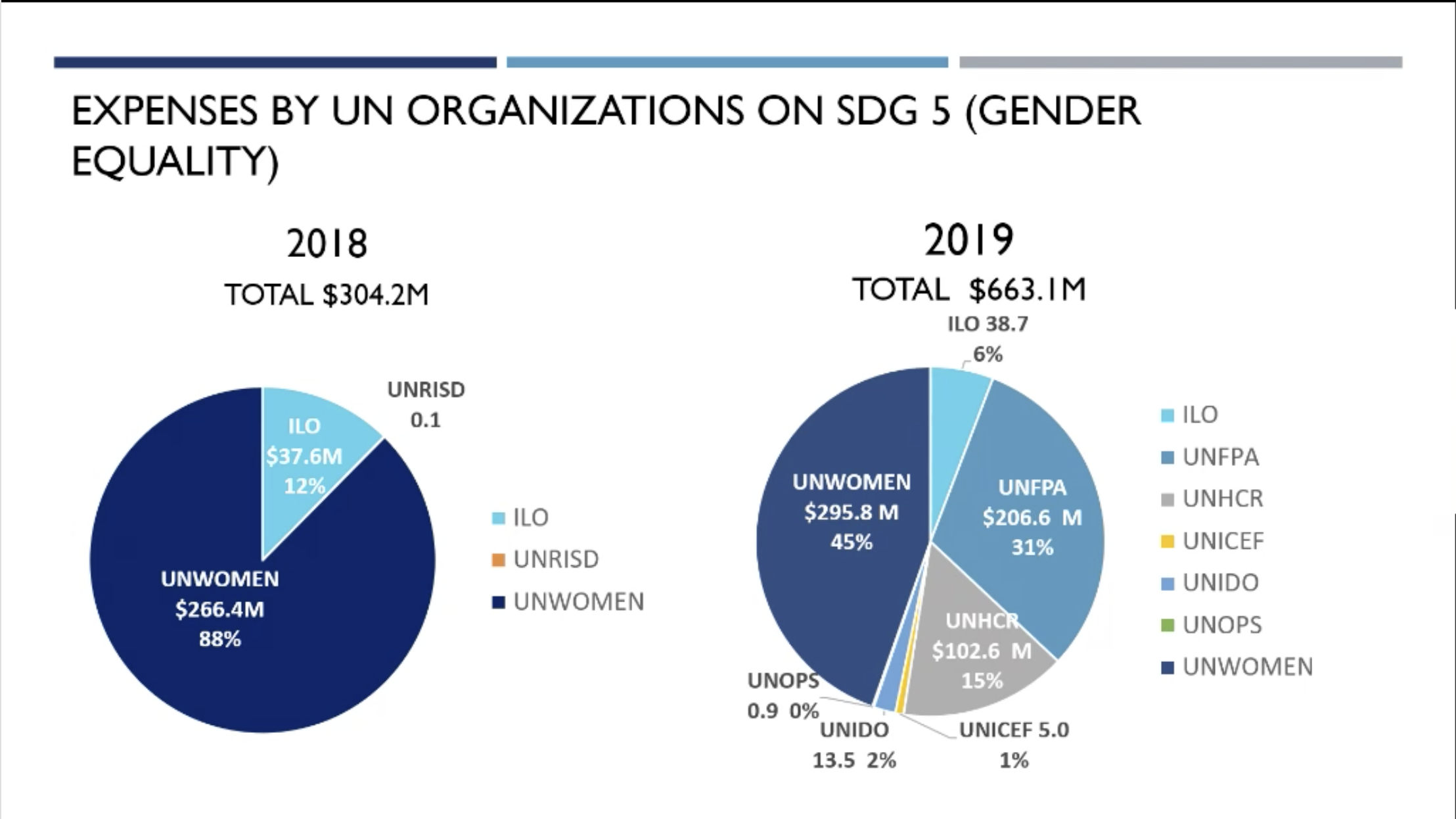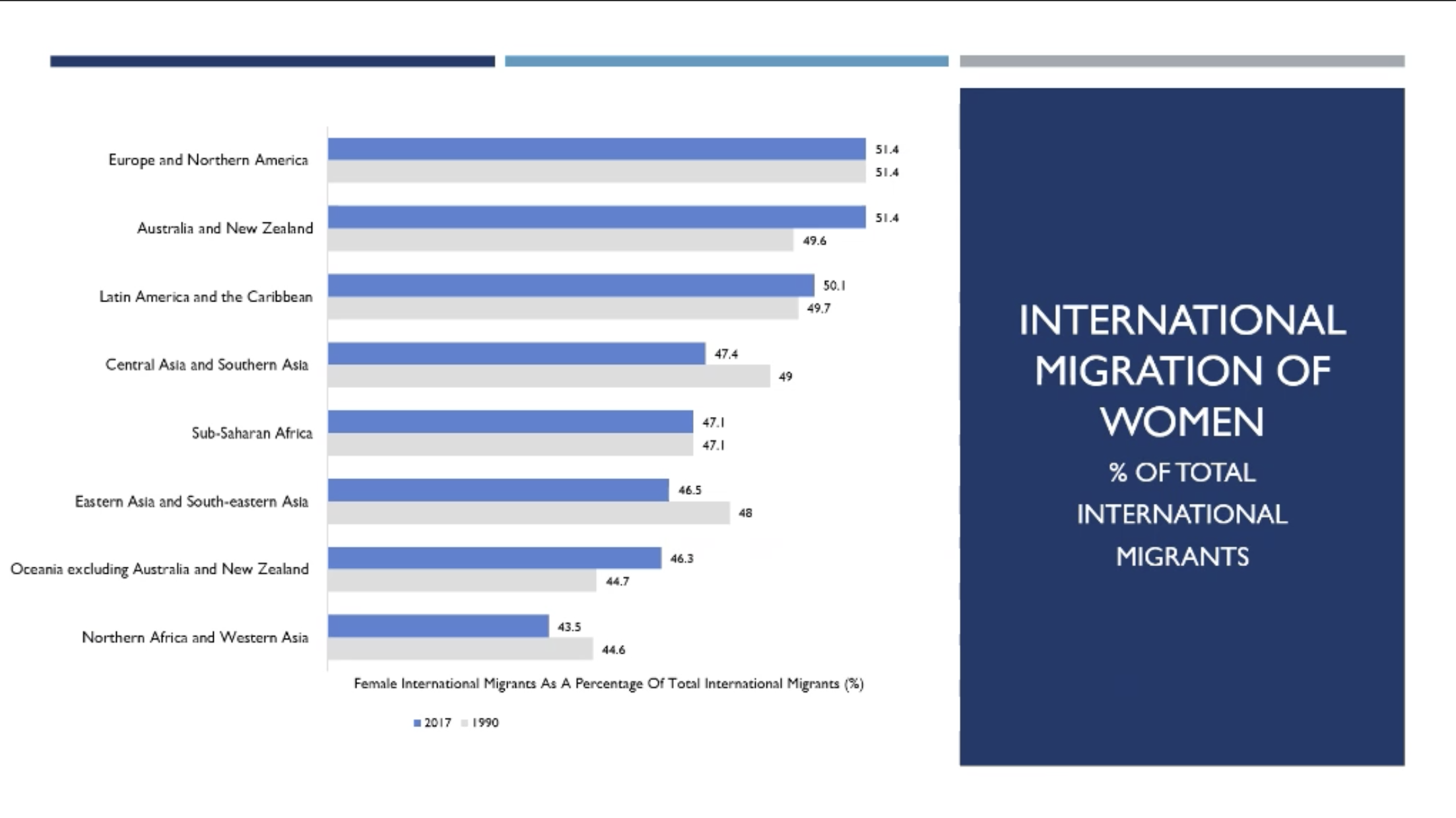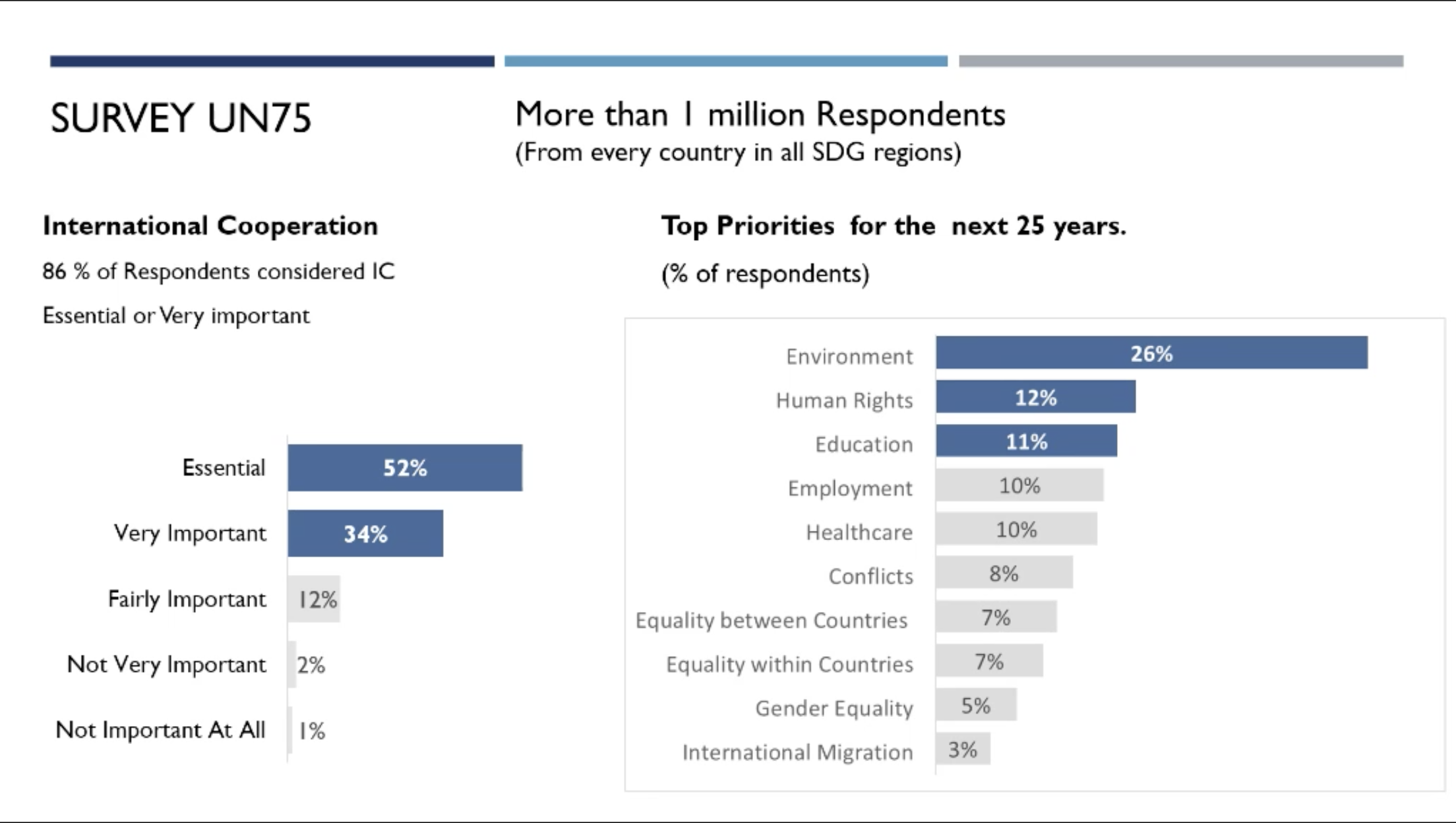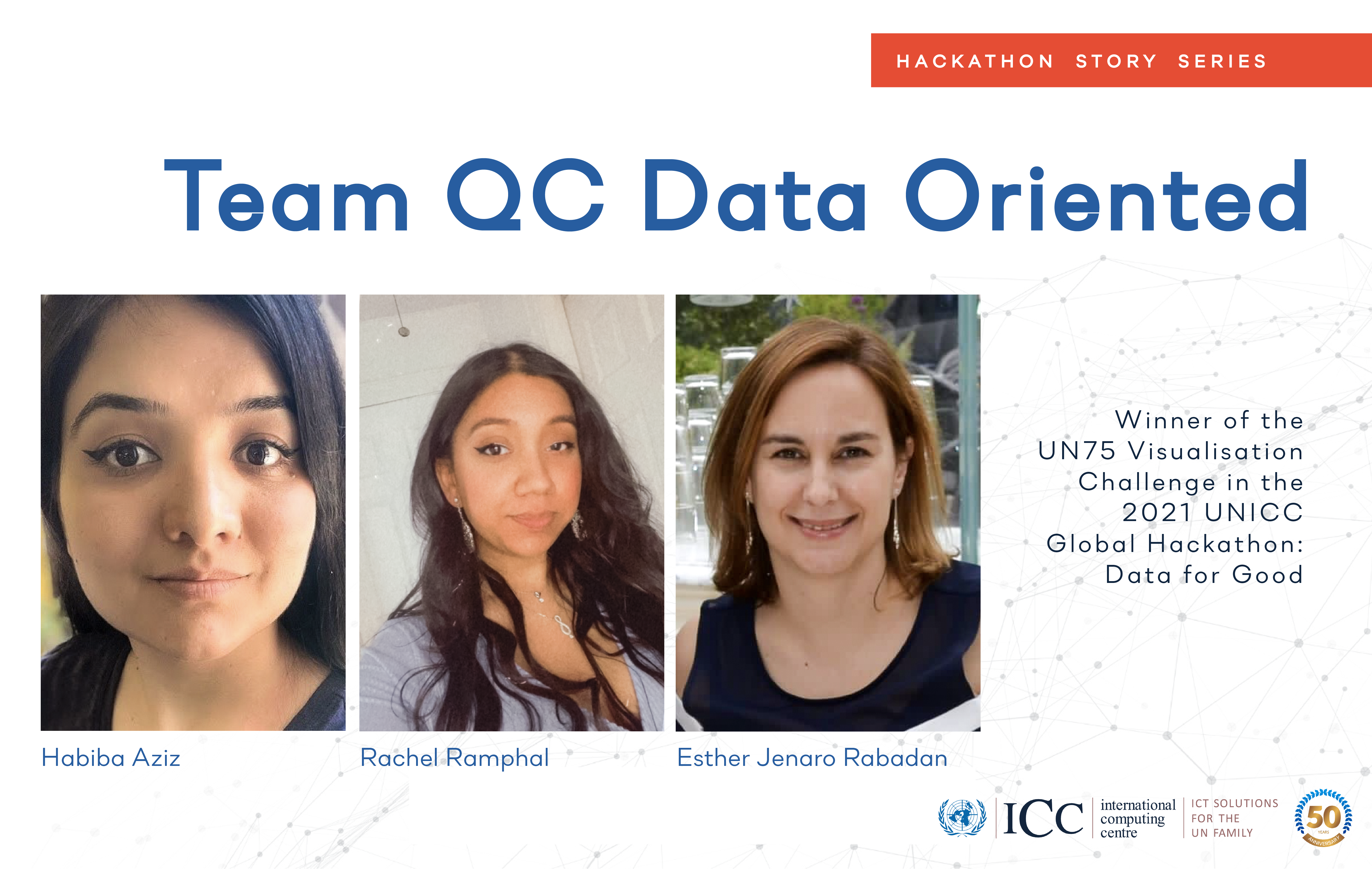2020 marked the 75-year anniversary of the United Nations as it continues to speak for international peace and security, deliver humanitarian assistance to those in need, protect human rights and uphold international law. The year also marked the 50th anniversary of UNICC and the five-year anniversary of the launch of the 17 Sustainable Development Goals, a framework for all UN entities and related NGO partner organizations to follow and work collaboratively.
As a UN organization, UNICC aligns with these goals in its delivery of projects and services to its 70+ Clients and Partner Organizations, particularly in its ability to meld technology with mission. UN Secretary General Antonio Guterres aptly explains this necessary occurrence: “For the UN to deliver better on our mandate in the digital age, we need to embrace technologies that can help accelerate the achievement of the SDGs.”
UNICC’s 2021 Global Hackathon: Data for Good provided an excellent use case for technology for good, including the victory of Team QC Data Oriented, winner of the UN75 Visualisation Challenge. Encouraged by professors Dr. Sophia Catsambis and Dr. Yin Zhou, City University of New York, Masters students Rachel Ramphal, Habiba Aziz, Esther Jenaro Rabadan registered for the Hackathon under as an all-woman team, right away supporting SDGs 5 for gender equality.

UNICC’s Global Hackathon: Data for Good launched on Tuesday, 16 February 2021 with an introduction from the organization’s executive leadership to a global audience of UNICC and other UN organizations’ staff members, university representatives and over 140 students. Following the introductory remarks from UNICC’s Director Sameer Chauhan and Chief of Digital Business Solutions Ninna Roco, Anusha Dandapani, Chief of Data Analytics, introduced the three challenges of the hackathon: COVID-19 Open Challenge, Refugee Crisis: Predict Forced Displacement, and the UN75 Visualisation Challenge.
From the beginning of the hackathon, team QC Data Oriented knew that they wanted to specifically create a solution around data visualisation – with this in mind, the all-female team centered their research and graphs around SDG 5 (gender equality). Rachel, Habiba and Esther joined forces to dig through UN data sets related to gender parity, such as data on UN organizations’ monetary expenses and investments by year towards combatting the issue of gender inequality.

The team also shared a visualisation on the percentage of women in international migration, showing data from 1990 and 2017 and compared the number of female migrants from varying countries with increases or decreases in movement. The visualisation served as a powerful reminder of the interdisciplinary nature of sustainable development and how a single Global Goal, SDG 5 (gender equality), can apply to issues such as international migration.
The panel of esteemed UN judges asked about a specific visualization: the prioritization of gender parity across the UN ecosystem. Qualitative data from surveys reveal the general attitude towards prioritizing issues of gender parity: there is quite a large gap between believing accomplishing SDG 5 today is essential and believing it to become a priority in the next 25 years.
This discrepancy interested the judges, as it belies an organization’s development in attitude towards discrete SDGs. By presenting this data, the team successfully highlighted the contrast in organizational priorities as to where progress is necessary.

The victory of team QC Data Oriented in the UN75 Visualisation Challenge speaks to a greater message that extends beyond the context of the Data for Good: Global Hackathon. As all-female team winners in a hackathon in a field infamous for the lack of gender parity, Rachel, Habiba and Esther defy the constraints of the very goal on which they successfully presented.
“My team went into the competition very nervous about our skills measuring up to our peers around the world, but we wanted to participate and try our best. If we had decided to give up, we would not have reached the finals and won our challenge. So, I will take away from this to continue working hard and believing in my capabilities – I hope to take away that no challenge is too big for me.”
Rachel Ramphal, Team QC Data Oriented
——————-
This article is part of a series of stories from the first UNICC Global Hackathon: Data for Good that took place in February 2021. The hackathon drew registrations from a total of 140 students from 54 universities located in 13 countries around the globe, all of whom came together to tackle three major UN related challenges: COVID-19 Open Challenge, Refugee Crisis: Predict Forced Displacement, and the UN75 Visualisation Challenge. To learn more about this successful event and its wonderful finalists, please refer to this article here.

